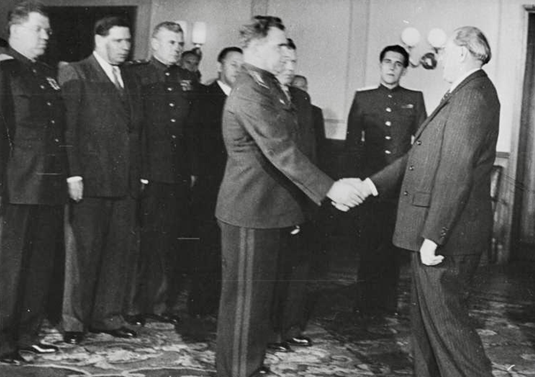The Leader Who Manages
- Maria A. Kithcart

- Dec 2, 2022
- 2 min read

Lieutenant-General V. I. Chuikov, Stalingrad, summer 1942.
When considering topics to write about for this blog, one guiding principle is focusing on what my students and readers will find to be most helpful in understanding the concepts of effective leadership and management. Based on ongoing intensive studies of Marshal Chuikov’s writings and the reviews of historians and his colleagues and soldiers, I conclude that Vasily Ivanovich was equally effective in both leadership and management roles. Although these two constructs are often used interchangeably, the truth is that leadership and management are two separate yet complementary skill sets.
To further explain this concept, Vivek Albuquerque shared the following insight:
“A manager who cannot lead will eventually run out of steam, while a leader who does not spend adequate time and effort on the activities of planning, organizing, and controlling, will ultimately run out of control and stop being functional. […] The challenge one faces is to combine strong leadership and strong management in the same person, and use one to balance the other. Once the differences between the two sets of skills are understood, the task will be to develop people to provide both in an integrated manner. The two different functions – coping with complexity and coping with change, shape the activities of management and leadership.”'
When considering a “best” scenario that demonstrates Marshal Chuikov’s ability to serve as a leader and as a manager, the gritty days of the Battle of Stalingrad easily come to mind. Planning, organizing, and controlling tactics and operations required clear thinking, collaboration, and action based on sound Army intelligence. Vasily Ivanovich worked with a strong leadership team in both Stalingrad and beyond through consultation with his military council members and his subordinate commanders as well as the Front Commander Eremenko. He was a follower who listened to others’ instructions and ideas when developing plans. Chuikov’s ability to inspire his soldiers to utilize innovative tactics, work together in small storm groups, and take the initiative out in the field speaks to his willingness to empower and build trust with his team. Finally, he possessed the necessary personality traits to endear himself to his troops and engender loyalty throughout the ranks.



